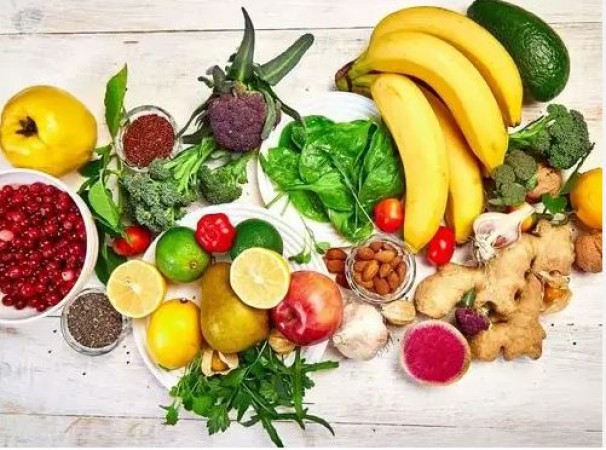In today's fast-paced world, digestive issues like gas and bloating have become increasingly common. These uncomfortable sensations can disrupt our daily lives and lead to discomfort and embarrassment. While there are various over-the-counter remedies available, why not turn to nature's own solution? Fruits, with their natural enzymes and fiber content, can be highly effective in reducing gas problems. In this article, we'll explore the power of fruits in combating digestive discomfort and improving overall gut health.
Understanding Gas Problems
Before we dive into the world of fruits as gas-relief champions, let's briefly understand the common causes of gas problems:
1. Diet Choices
- High-Fiber Foods: Consuming foods rich in fiber, while excellent for digestion, can sometimes lead to excess gas.
- Carbonated Drinks: Soda and carbonated beverages introduce air into the digestive tract, causing gas buildup.
- Artificial Sweeteners: Sugar substitutes like sorbitol can ferment in the gut, producing gas.
2. Eating Habits
- Eating Quickly: Swallowing air while eating fast can result in increased gas.
- Overeating: Consuming large meals can overwhelm the digestive system and lead to gas.
3. Food Intolerances
- Lactose Intolerance: An inability to digest lactose, found in dairy products, can cause gas and bloating.
- Fructose Intolerance: Difficulty digesting fructose, found in some fruits and sweeteners, can lead to gas.
Now that we've identified the culprits, let's explore the fruits that can help alleviate gas problems and promote better digestion.
Gas-Relief Superstars: Fruits to the Rescue
1. Papaya
- Digestive Enzymes: Papaya contains papain, an enzyme that aids digestion by breaking down proteins.
- Fiber Content: The fiber in papaya supports regular bowel movements, reducing gas buildup.
2. Pineapple
- Bromelain Enzyme: Bromelain in pineapple helps with protein digestion and reduces bloating.
- Antioxidants: Pineapple's antioxidants promote a healthy digestive system.
3. Bananas
- High Potassium: Bananas help regulate sodium levels and prevent water retention.
- Soluble Fiber: The soluble fiber in bananas eases digestion and reduces gas.
4. Kiwi
- Enzyme Actinidin: Kiwi contains actinidin, which aids protein breakdown and reduces flatulence.
- Fiber: Kiwi's fiber content supports regular bowel movements.
5. Ginger
- Anti-Inflammatory: Ginger soothes the digestive tract and reduces gas-related discomfort.
- Muscle Relaxant: It relaxes intestinal muscles, preventing gas buildup.
Incorporating Gas-Relief Fruits Into Your Diet
Now that we've identified these fantastic gas-relief fruits, let's discuss how to include them in your daily meals:
1. Fresh Fruit Salad
- Combine papaya, pineapple, bananas, and kiwi for a delicious and nutritious fruit salad.
- Enjoy it as a refreshing snack or a side dish with your main meal.
2. Ginger Tea
- Brew a cup of ginger tea using fresh ginger slices.
- Sip it after meals to aid digestion and prevent gas.
3. Smoothie Delight
- Blend pineapple, banana, and a touch of ginger for a tasty and gas-relieving smoothie.
- Perfect for a quick breakfast or post-workout snack.
Additional Tips for Gas Prevention
1. Mindful Eating
- Chew your food slowly and thoroughly to minimize air swallowing.
- Eat smaller, more frequent meals to avoid overeating.
2. Stay Hydrated
- Drink plenty of water throughout the day to aid digestion and prevent constipation.
3. Monitor Food Intake
- Identify trigger foods that may cause gas and limit their consumption.
Final Thoughts
Gas problems can be uncomfortable and disruptive, but incorporating gas-relief fruits into your diet can provide natural relief. Whether you choose papaya, pineapple, bananas, kiwi, or ginger, these fruits offer a tasty and effective way to promote digestive health.
Remember, adopting healthy eating habits and staying hydrated are essential components of maintaining a gas-free and comfortable digestive system. So, go ahead and embrace these natural remedies to enjoy a happier, gas-free life!
These budget bikes are best for daily hustle and bustle
The Importance of Vitamin B for Hair Growth
How Your Sleep Habits Impact Weight Loss?
